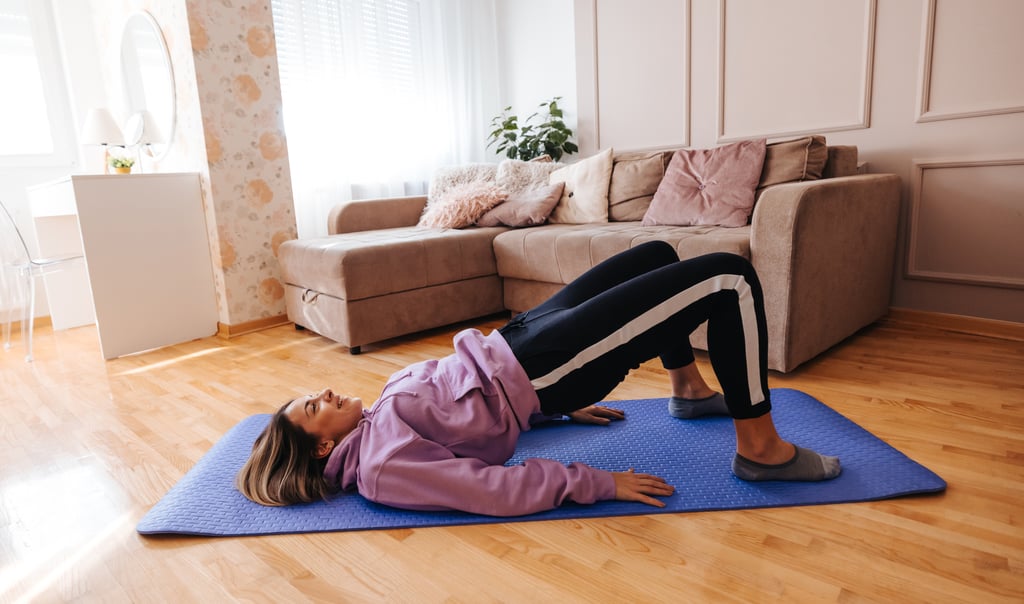Products You May Like
Image Source: Getty Images / bojanstory
Want to strengthen your butt, hamstrings, and back, all while working on your core stability? You can do it all in one fell swoop, thanks to the glute-strengthening wonder known as the bridge. You’ve likely seen this exercise in everything from Pilates workouts and yoga classes to strength workouts and physical therapy routines — that’s because it’s a beginner-friendly move that just about anyone can benefit from. Doing glute bridges is a great way to build deep core strength and wake up inactive or dormant butt muscles (when they become weak or dysfunctional due to prolonged sitting and tight hip flexors), per the National Academy of Sports Medicine (NASM). You don’t need any equipment to do glute bridges, but you do need some tips to properly activate your glutes while you’re banging out reps. Here’s an intro to the glute bridge exercise, plus several variations to try. They’ll help turn this traditional exercise up a notch or adjust the target to different muscles so you can make the most of this winning move.
1
Traditional Glute Bridge Exercise
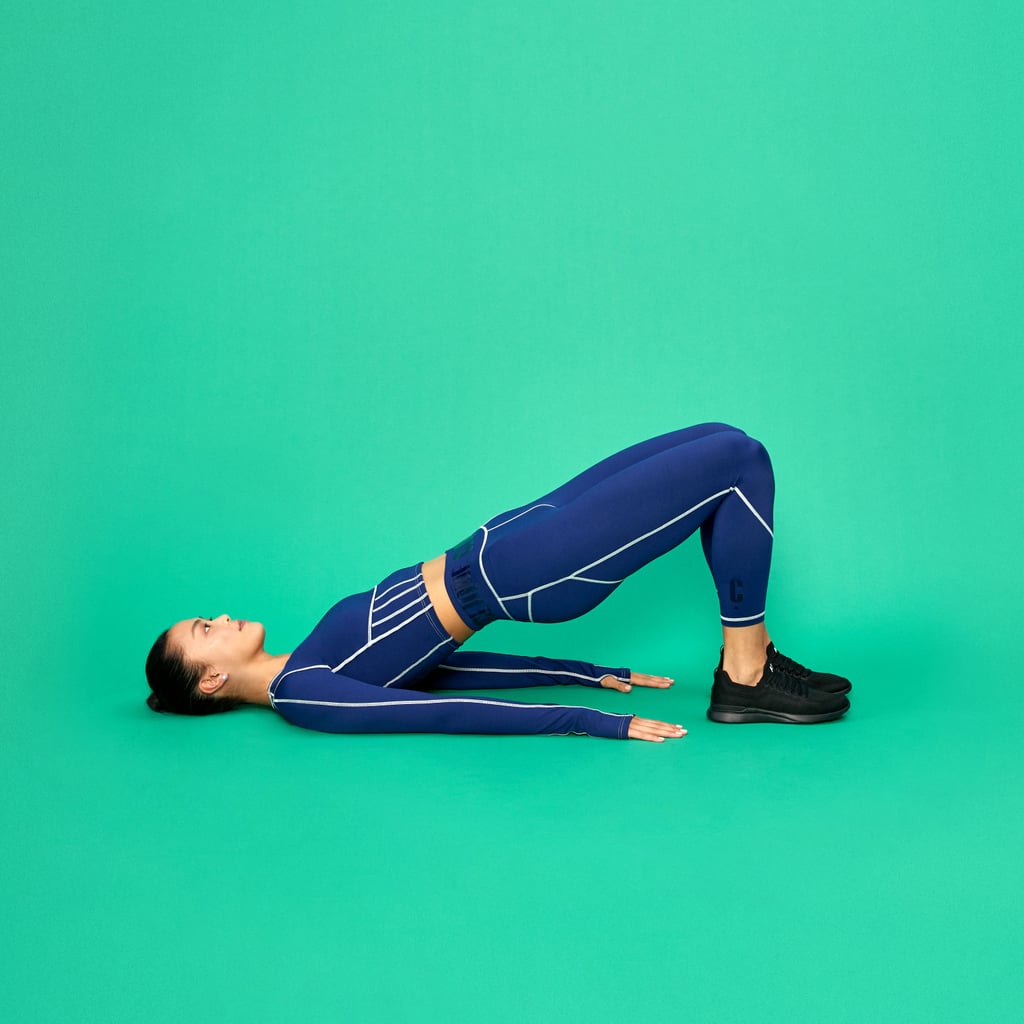
Image Source: POPSUGAR Photography / Sam Kang
Product Credit: Clique compression crop top, Clique compression leggings, APL sneakers, Emma Pills rings and studs
1 / 7
2
Marching Bridge
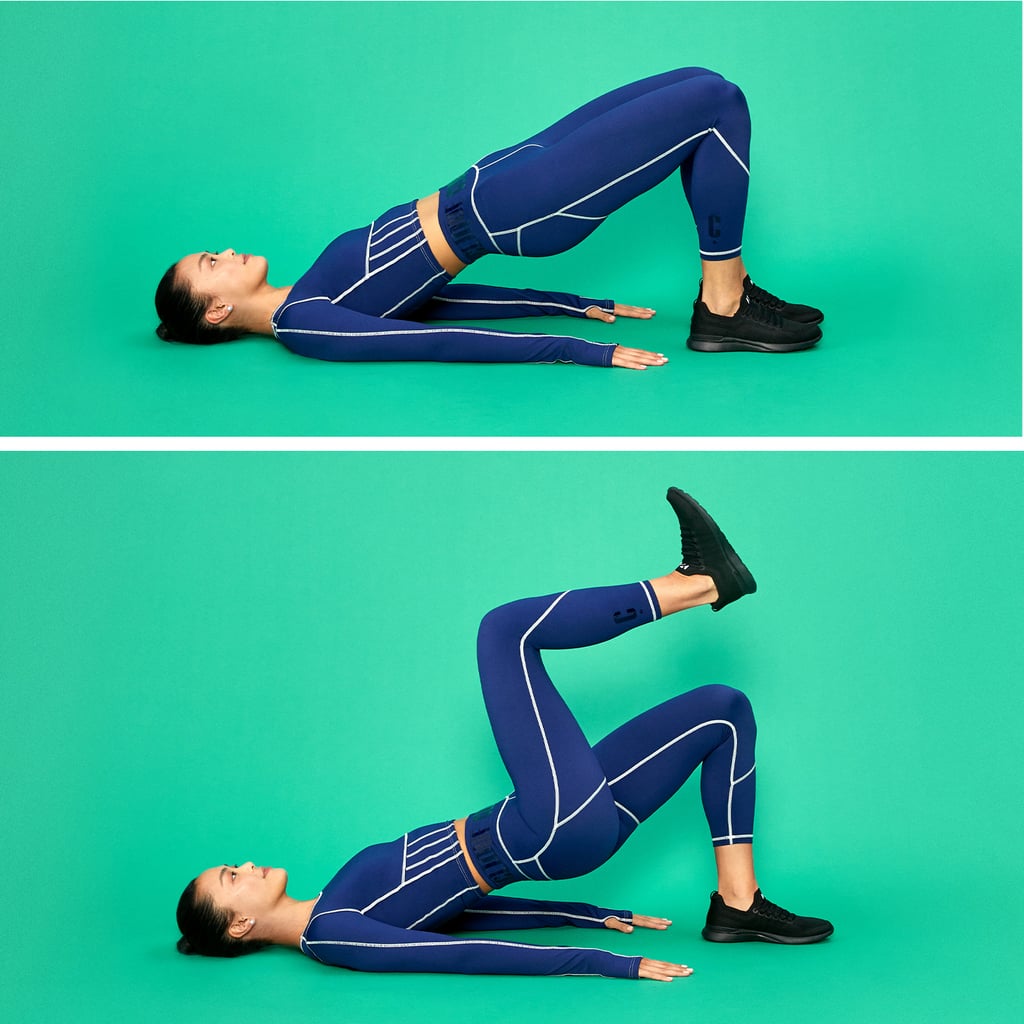
Image Source: POPSUGAR Photography / Sam Kang
Product Credit: Clique compression crop top, Clique compression leggings, APL sneakers, Emma Pills rings and studs
2 / 7
3
Single-Leg Bridge
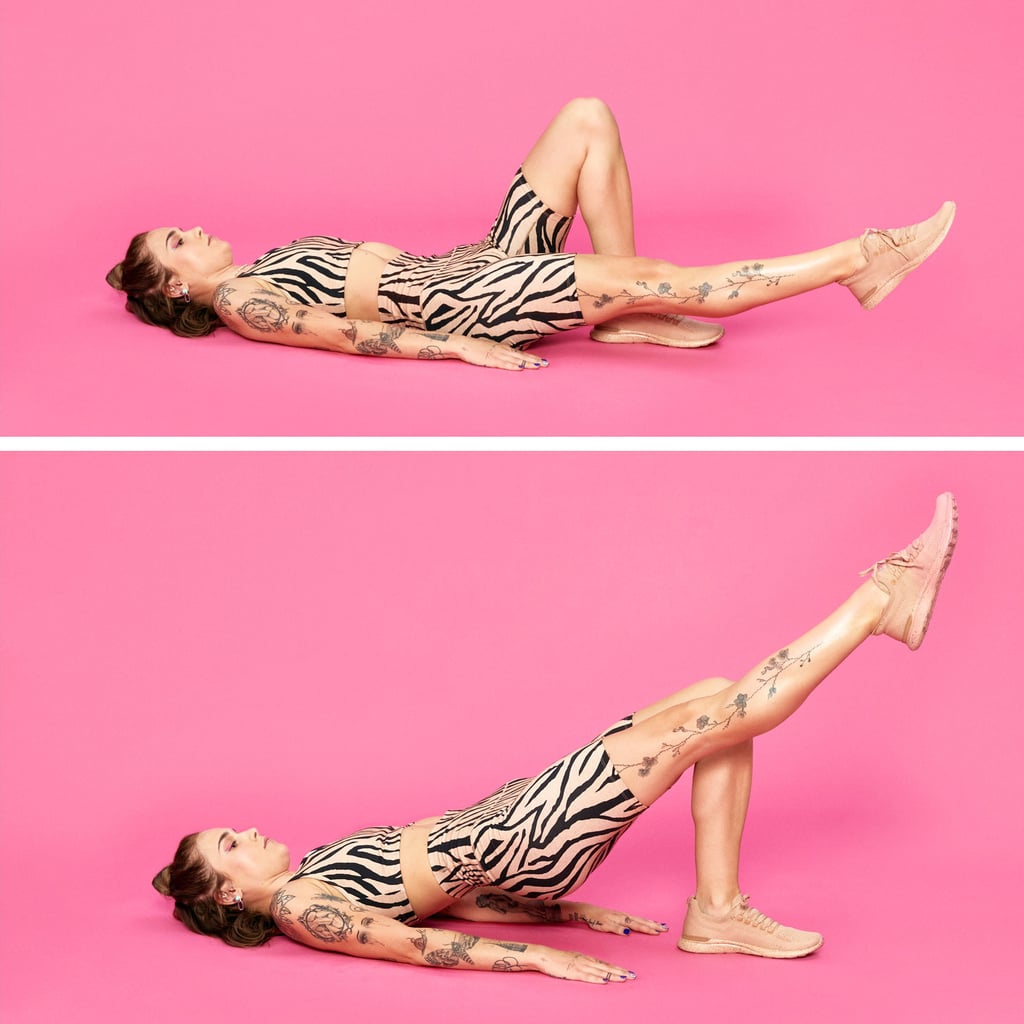
Image Source: POPSUGAR Photography / Sam Kang
Product Credit: PE Nation sports bra, PE Nation biker shorts, APL sneakers
3 / 7
4
Bridge With Yoga Block
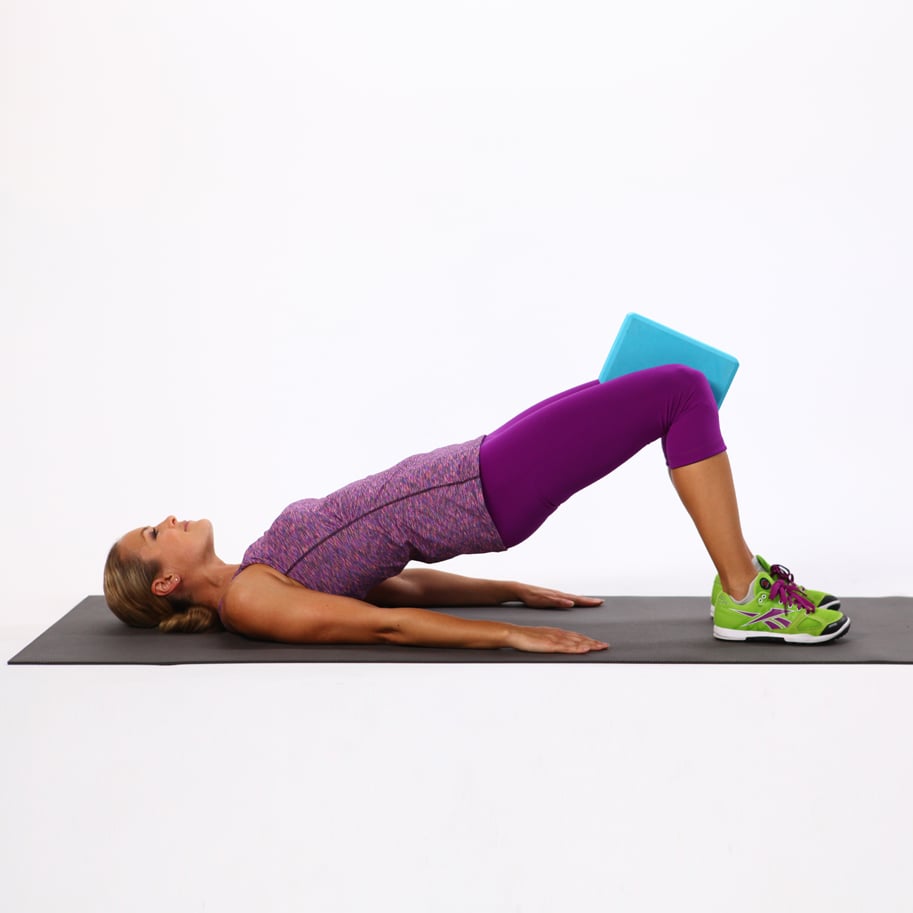
Image Source: POPSUGAR Studios
4 / 7
5
Elevated Bridge
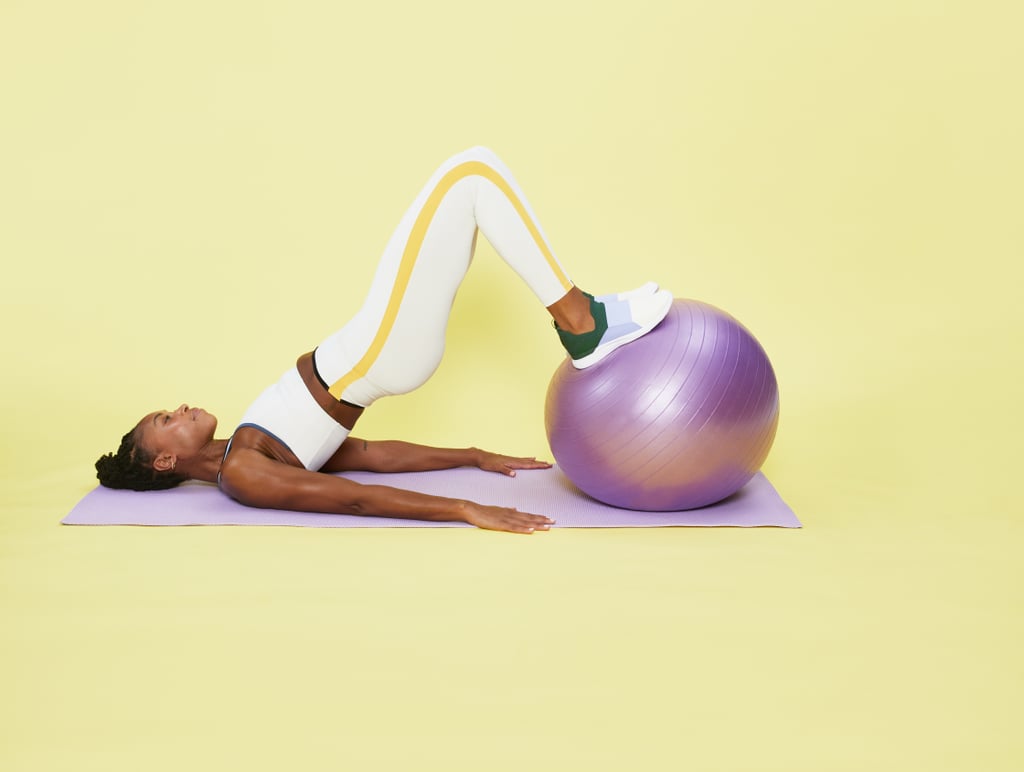
Image Source: POPSUGAR Photography / Sam Kang
Product Credit: Splits59 sports bra, Splits59 leggings, APL sneakers
5 / 7
6
Straight-Leg Bridge Hold With Stability Ball
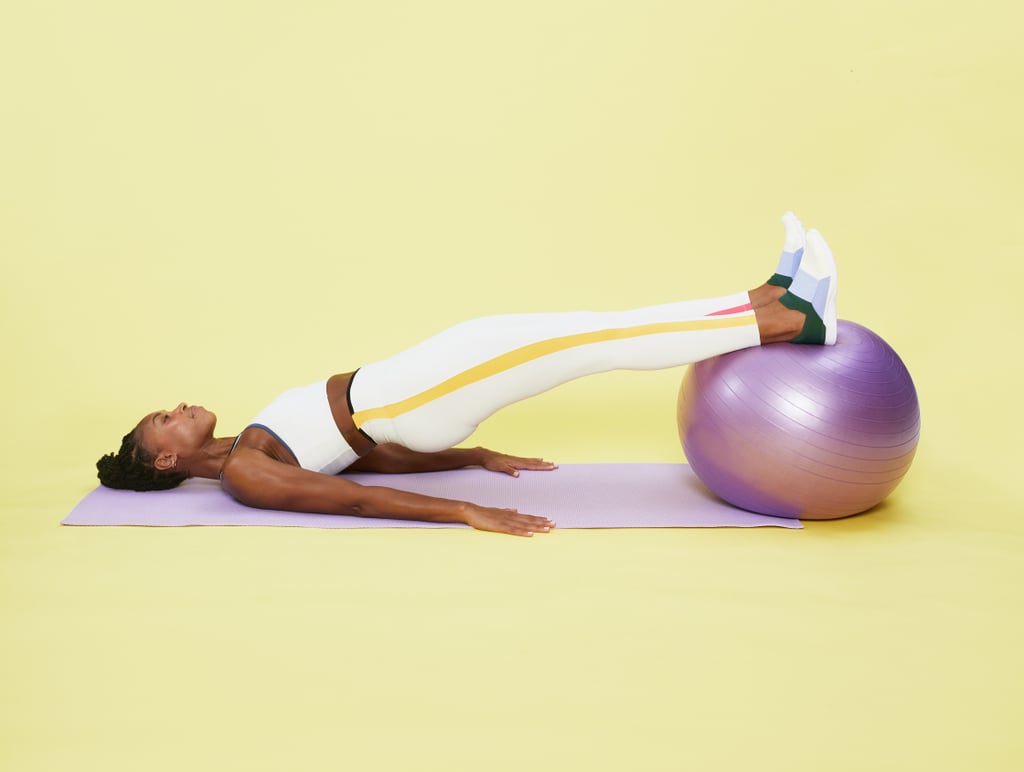
Image Source: POPSUGAR Photography / Sam Kang
Product Credit: Splits59 sports bra, Splits59 leggings, APL sneakers
6 / 7
7
Bridge Pose (aka Half-Wheel Pose)
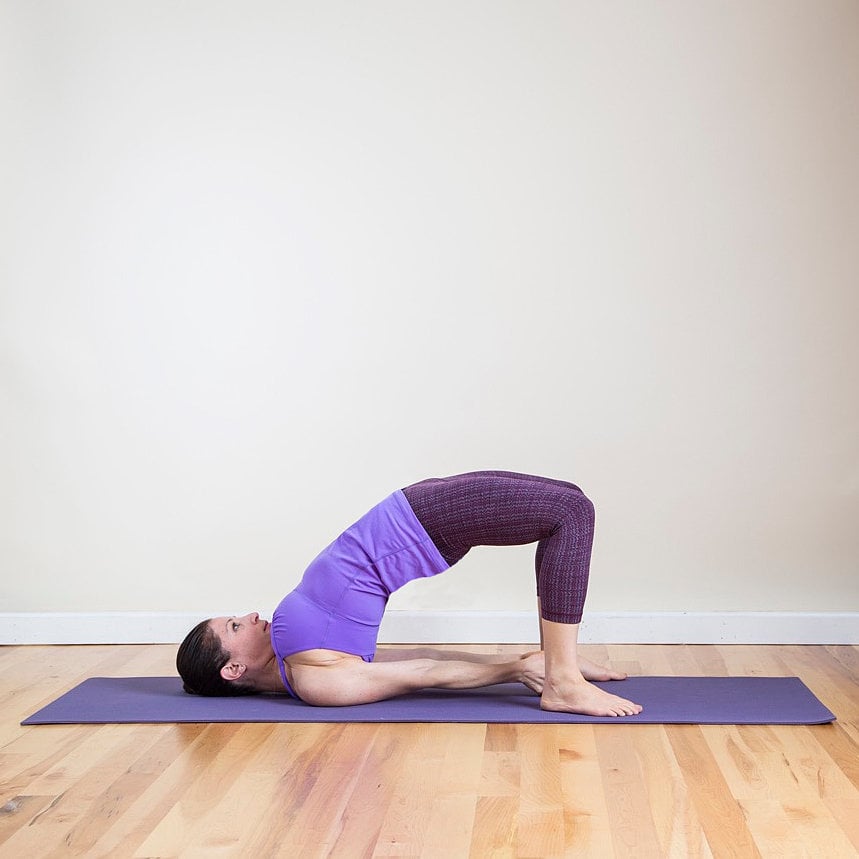
7 / 7
